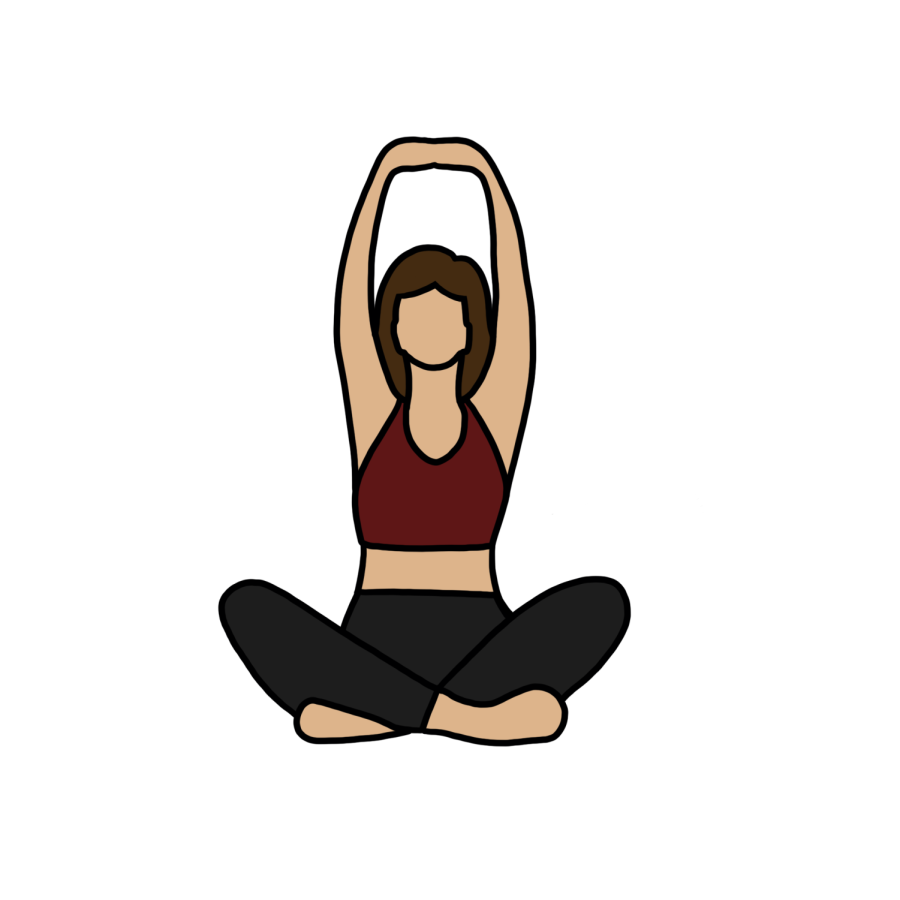Op-ed: Stop feeling guilty for taking a break
Students should prioritize taking breaks from school work for both mental and physical health.
March 16, 2022
Similar to many students, my first semester at Northeastern required a lot of adaptation. Throughout my senior year of high school, I expected college to provide me with scarcely any free time, and I predicted that I would find myself drowning in work 24/7. I came to Northeastern with this belief, compelling me to kill most of my time studying in one of Snell’s cubicles while barely exploring the sites of Boston that drew me to Northeastern University in the first place.
When my friend from Worcester Polytechnic Institute came over one weekend in October, I realized the value of cherishing the free time that I do have. His visit was the first time I truly explored the heart of Boston by venturing to sites such as the Museum of Science, the Prudential Center and other college campuses. Northeastern’s convenient location in the heart of Boston encouraged me to make the most of my free time. It also has led me to realize that taking breaks is essential to our well-being as students. Remembering to rest guarantees that we can enjoy life while also maximizing the quality of our work.
Most people agree on the importance of taking a break. Yet, a study conducted by Ohio State University found that, compared to August 2020, the number of students who reported that they had feelings of burnout in April 2021 shot up 40%. The study also discovered that students have been experiencing increased cases of anxiety, depression, substance abuse, omission from physical activity and social isolation. The American Psychological Association describes how, in 2020, 18 to 23-year-olds in college attributed 85% of their stress to education.
There is a stigma against taking a break that needs to be addressed. The Life Adjustment Team, which attempts to provide patients with stable and productive lives through recovery methods centered around in-home structures and support systems, states that people avoid taking breaks because they have too many tasks to focus on. It also mentions that people fear that taking a break will cause others to perceive them as less motivated or dedicated. Courtney Seiter from Fast Company, a business magazine centered around design, technology and business, acknowledges that many individuals believe they are too busy for breaks.
But, in reality, there is nothing wrong with taking a break. Instead of feeling guilty about pushing off school work, realize that moments to forget about tasks boost productivity in the long run. Tork, a global hygiene and health company, discovered that skipping breaks can accelerate burnout and heighten stress levels. People who take breaks frequently ultimately benefit from increased productivity, job satisfaction, mental health, well-being and better work engagement.
Even though many feel that their schedule is too hectic to accommodate breaks, incorporating stress management activities in our everyday lives is very beneficial. A study in the Journal of Physical Activity and Health suggests that physical activities such as stair climbing, physical detachment from work and actions to relax after work lower the likelihood of demanding a long recovery at the end of a day. Another study in the Scandinavian Journal of Work and Organizational Psychology concluded that not only can breaks raise energy levels and diminish exhaustion, but they can also cause energy levels to progress over time.
Nivati, a company centered on an app that manages employee mental health and well-being, emphasizes that breaks are also essential in re-assessing our life goals. We need time to process why we are sacrificing most of our time into certain academic activities and whether they align with our aspirations. They note other harmful consequences of the scarce number of breaks in our lives including sitting behind a laptop screen for too long, which promotes muscle tension, headaches and eye strain. Breaks can lead to creativity boosts and an overall increase in our satisfaction levels.
Nivati also suggests taking longer breaks during the day, taking naps, socializing and taking micro-breaks. The company also encourages people to engage in mentally recharging activities such as yoga, reading, washing the dishes and going for walks.
Don’t let the fear that others will deem you lazy or that the quality of your work will decline prevent you from resting when needed. Taking breaks is necessary and can especially be done in a city like Boston which has so much to offer. No one can judge you for acknowledging your biological indicators telling you to rest.
As Northeastern students, we are so fortunate to be placed in one of the best cities in the United States. In Boston, there is something for people of all walks of life to enjoy. For those seeking moments of contemplation, visit the Museum of Fine Arts or gaze at the Christian Science Center reflecting pool and feel your stress dissipate like the sun on a brilliant summer evening. Don’t let your Northeastern experience go to waste. You’re not just a student: you’re a fellow “Bostonian” as well.
Jethro Ronald Lee is a first-year data science and psychology combined major with a minor in music. He can be reached at [email protected].


















